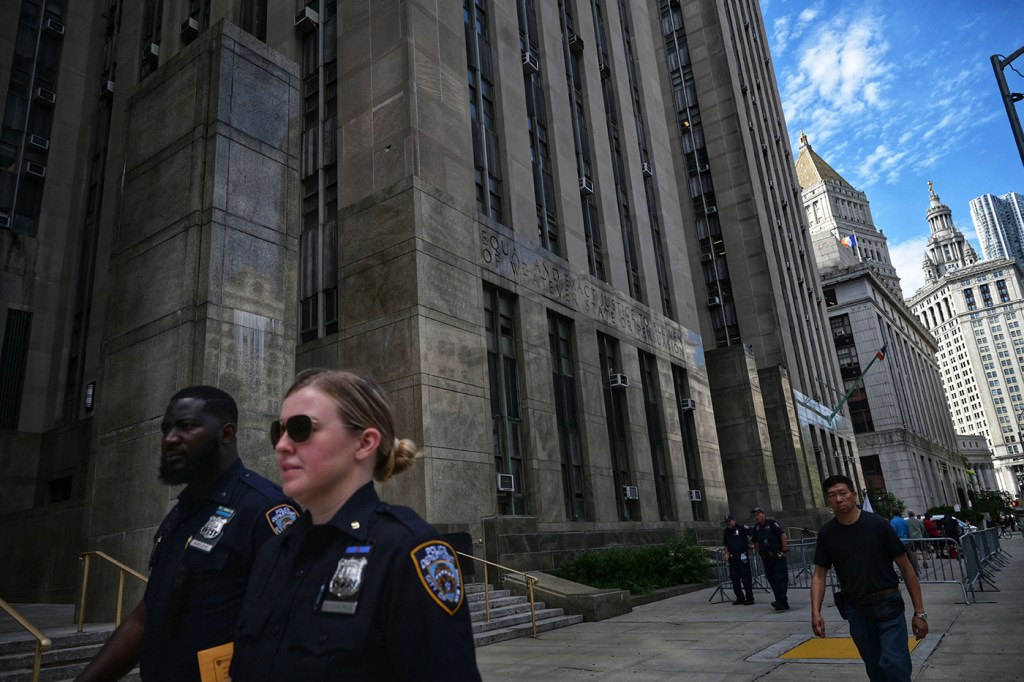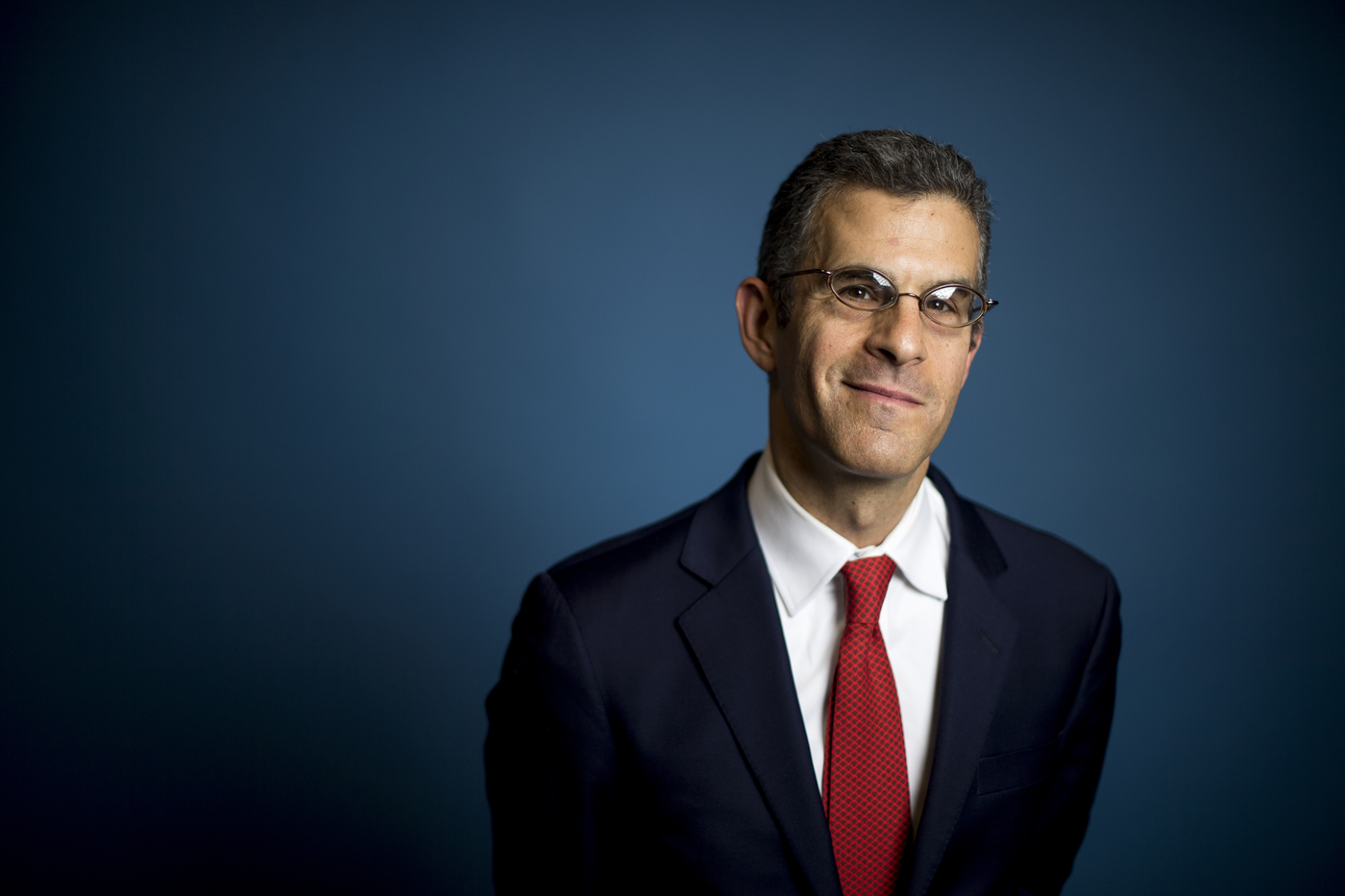Northeastern professor scores legal win in holding prosecutors accountable

A Northeastern law professor scored a major legal win in federal court in New York this summer as part of a years-long effort to hold criminal prosecutors to a greater standard of accountability for their wrongdoing.
Professor Daniel Medwed is one of six law professors who, as part of a project called “Accountability New York,” published more than 20 complaints of misconduct against district attorneys in Queens in May 2021.
The group tried to highlight further what they were doing online, all in an effort to strengthen governmental accountability and transparency. Almost immediately, though, the professors were subjected to threats of retaliation by the New York City Corporation Counsel and prosecutors in the city.

So, the professors went on the offensive. Along with the nonprofit Civil Rights Corps and the pro bono team at the law firm Patterson Belnkap Webb & Tyler, they sued the officials who tried to prevent them from publishing their grievances. On June 13, the plaintiffs received positive news—Judge Victor Marrero of the Southern District of New York had ruled in the professors’ favor, determining they had a right, guaranteed by the First Amendment, to publish the complaints.
Although litigation is not complete and there are other claims the court has yet to decide on, Medwed views the ruling as a win. His hope is that the decision will both encourage others throughout the country to file complaints against prosecutors for misconduct and put district attorneys on notice that there will be consequences for their wrongdoing.
“It’s a victory for transparency and prosecutorial accountability,” Medwed says. “This is about the freedom to publicize information about matters of public concern. It’s all true information. It’s all public information. We just connected the dots.”
The professors’ case speaks to the fact that district attorneys have been able to practice with immunity for decades, with little to no consequences for missteps, according to Medwed, a former public defender in New York City, a leading authority on criminal law and the author of “Barred: Why the Innocent Can’t Get Out of Prison.” Since its inception, the criminal justice system has been set up to protect prosecutors, and it is difficult to hold them accountable for a slew of reasons, he says.
“Many prosecutors’ decisions are opaque and done behind closed doors, people don’t pay a lot of attention to prosecutorial elections and the ethics process is somewhat of a sham,” Medwed says.
Another part of the problem, he points out, is that prosecutors are absolutely immune from civil liability, meaning they cannot be sued for missteps, as long as their actions were part of the process of litigating their case. And even if prosecutors do something wrong, they are seldom named publicly for their misconduct.
To combat this problem, Medwed has been filing disciplinary complaints for the past few years against district attorneys who have documented records of misconduct. According to Medwed, he has “very little to lose.” Unlike defense attorneys, he does not need to fear getting on prosecutors’ bad sides, as he is a professor and “not in the trenches of the court.”
A practicing defense attorney may be hesitant to file a formal grievance against a prosecutor due to fear of retaliation. They may worry that the prosecutor will not work with them in the future, offer them plea bargains or treat their clients fairly, Medwed says.
As a former public defender and as a professor, Medwed has observed numerous instances of prosecutorial misconduct, he says, which can run the gamut from procedural missteps over the treatment of evidence to such wrongdoings during trial as “egregious closing arguments.”
A district attorney’s closing argument is an area of criminal law where misconduct is frequent. During closing arguments, both sides to a case are given great flexibility and are able to comment on the evidence in a way that provides a narrative. Out of practice and professional courtesy, lawyers are also reluctant to object to aspects of opposing counsels’ closing arguments.
There are some rules on what can be said at the conclusion of a case because closing arguments are so powerful and serve as one of the last impressions on the jury before a case is decided. District attorneys are not allowed to question the integrity of the opposing counsel, appeal to patriotism or religion, vouch for a witness nor allude to the existence of evidence that they were not permitted to present at trial. Still, prosecutors often violate these rules.
“You can’t allude to the fact that there’s stuff behind the curtain that you weren’t allowed to see,” Medwed says. “Those are some examples of wrongdoing: basically, appeals to passion and tricks that are designed to get the jury to react emotionally to the crime.”
Another significant area of prosecutorial misconduct centers on the Brady rule, a doctrine established by the U.S. Supreme Court in 1963 that requires prosecutors to turn over evidence to defense attorneys that may be favorable to their client’s case and consequential to the question of guilt or innocence.
“In our criminal justice system, the prosecution has a lot of power. They have the power to charge people with crimes. They have the power to offer people plea bargains. They have the investigative resources of the police department, which they can utilize for free,” Medwed says. “They have all this power and all these resources that defendants typically don’t.”

The purpose of the Brady rule, he says, is to make the criminal justice system fairer by lessening the power imbalance between prosecutors and defense attorneys, as the former have significantly more state resources behind them.
Brady violations are commonplace, according to Michael Meltsner, the George J. and Kathleen Waters Matthews Distinguished University Professor of Law. Therefore, the federal courts may wish to fashion some type of response to try to remedy prosecutors’ repeated violations of the U.S. Constitution.
The Brady rule may need to be given teeth, and Medwed’s suit, although unique, may be a step in the right direction, Meltsner says.
“Professor Medwed’s lawsuit may fail in court, but, regardless, it has performed a public service by alerting the public to a problem few recognize,” he says. “Protecting against wrongful convictions requires making prosecutors accountable, whether their behavior is mischievous or inadvertent.”
As he practiced in criminal defense in Brooklyn before coming to Northeastern, Medwed is well aware of the risks posed by prosecutorial misconduct, Meltsner notes.
“Brady violations, bad behavior during closing arguments, overcharging by officers, browbeating witnesses: These are all factors in wrongful convictions,” Medwed says. For media inquiries, please contact media@northeastern.edu.





